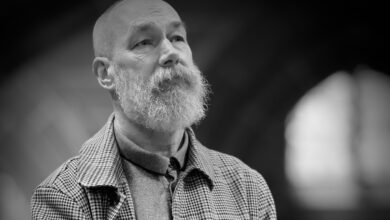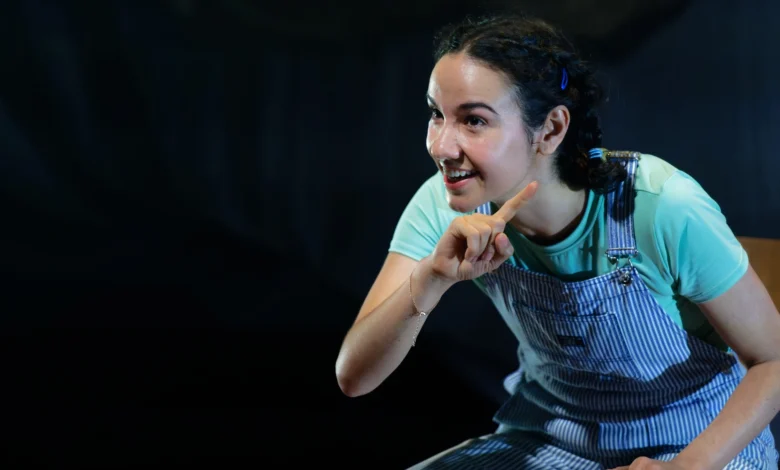
Review: A Grain of Sand At Unity Theatre
When Storytelling Becomes Survival: Sarah Agha’s Shattering Tour-de-Force
The air at Liverpool’s Unity Theatre hung heavy with anticipation on Friday, July 18th. A palpable hush fell over the sold out auditorium as the lights dimmed and Sarah Agha stepped into a single shaft of light. What followed was not simply a performance, but an emotional reckoning—an unrelenting immersion into the shattered world of Renad, an 11- year-old Palestinian girl, in Elias Matar’s harrowing one-woman show, A Grain of Sand.
From the opening seconds, it was clear that this production would not offer easy comfort. Instead, it delivered a theatrical gut punch—honest, raw, and devastating. Agha, an electrifying stage presence, took full command of a stripped-back set: a mound of sand, a solitary chair, and a projection screen that served as both a visual backdrop and a silent, haunting chorus. It was a masterclass in restraint. In the absence of clutter, what remained was the unbearable weight of memory, trauma, and love.
The play’s emotional resonance stems from its truth. Drawing from the real testimonies of Palestinian children, collected in Leila Boukarim’s A Million Kites, the testimony of A Grain of Sand presents Renad’s story not as a standalone tragedy but as one voice among countless others. Behind Agha, the names and ages of real children lost to the conflict in Gaza flickered silently across the screen. Their presence—unspoken yet ever- present—became a chorus of ghosts. Renad is fictional, yes, but her pain, her journey, her voice—they are all real.
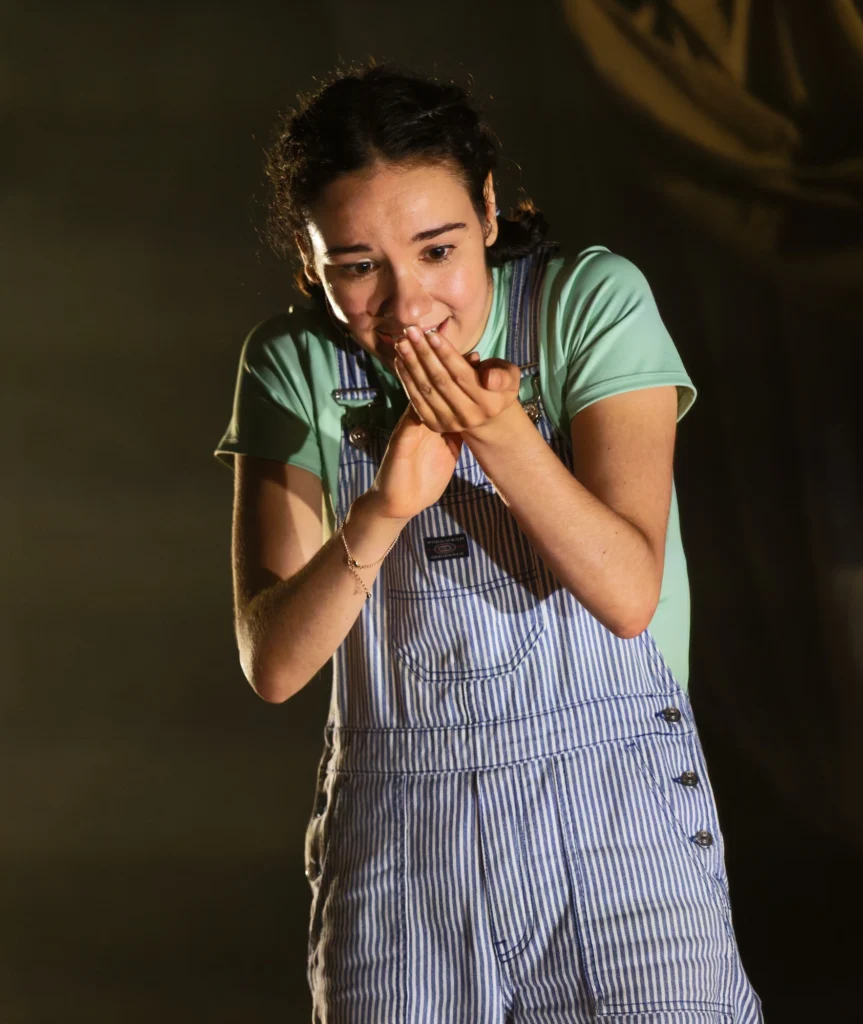
Under the careful direction of Elias Matar, Agha delivers a performance of extraordinary range and nuance. She weaves together Renad’s memories, dreams, and nightmares with moments of dark humour, cultural tradition, and the stark terror of war. Her ability to pivot from a whispered folktale to the sound of an airstrike, from a glimmer of hope to an abyss of despair, was nothing short of astonishing. Her storytelling felt lived-in, unflinching, and deeply compassionate.
There were moments of surprising levity, as Agha employed physical comedy and witty dialogue to draw out the innocence Renad clings to. These glimpses of normal childhood—games, memories, family anecdotes—made the violence that followed feel all the more brutal. Particularly effective was the recurring motif of the phoenix, a symbol of rebirth from the ashes, drawn from Palestinian folklore. Through this image, Renad constructs a fragile mythology of survival—a way to make sense of the chaos around her.
The creative team behind the show—produced by Good Chance Theatre—deserves special mention. The minimalist aesthetic worked in perfect harmony with the material. Subtle shifts in lighting helped delineate scenes of memory, trauma, and fantasy. The sound design, equally spare but impactful, underscored the narrative without overwhelming it. The crashing waves, the swell of music, the terrifying hum of drones—all contributed to a sensory experience that was as immersive as it was emotionally exhausting.
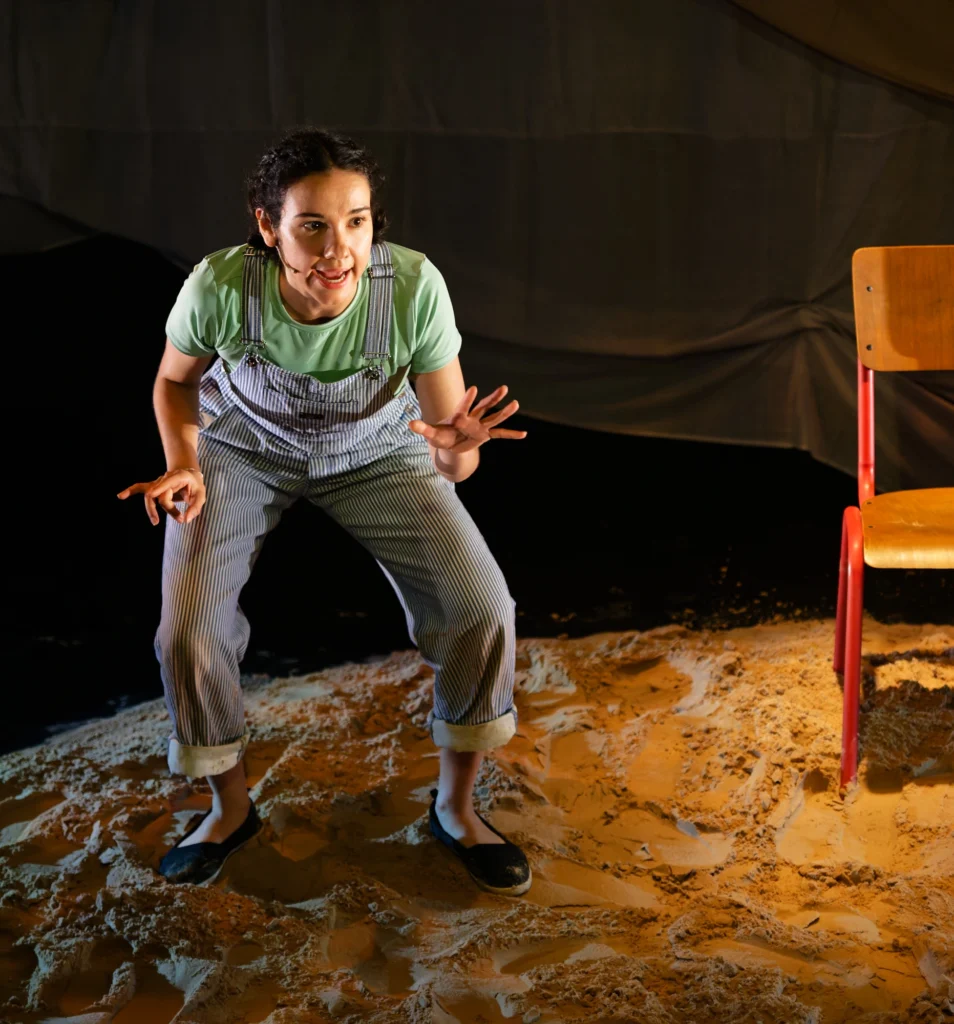
The play’s opening line – When you love something and lose it, if you keep thinking about it, it will come back to you — set the tone for what followed: a meditation on loss, memory, and the impossible task of holding onto hope when everything else is gone. We were soon plunged into the chaos of an airstrike that destroys Renad’s home, and from there, we followed her agonising journey through Gaza’s ravaged streets, hospitals, and refugee sites. Every step was soaked in dread. Every flicker of hope was undercut by the looming threat of loss.
One of the production’s most powerful moments came in a church that Renad briefly finds shelter in, before it too is reduced to rubble. In the wreckage, Renad notices a statue of the Virgin Mary still standing, holding her child. All mothers are the same, she says, birthing a moment of universal sorrow that transcended language, geography, and religion.
The integration of direct quotes from real Palestinian children was handled with immense care. Their words—simple, unfiltered, spoken without understanding the politics behind their suffering—added layers of unbearable immediacy to the performance. These weren’t abstract statistics. These were children wondering if they’d be allowed to go home, questioning why bombs fell from the sky, asking how much longer before people start feeling? Ramadan Jazer’s question in particular felt like a challenge hurled directly at the audience—and one that stayed long after the applause had faded.
The final scene brought no easy resolution. Renad doesn’t find her family. Instead, she discovers a single can of beans, part of an aid drop washed ashore. Remembering her father’s teachings and her grandmother’s caution against greed, she takes only one and leaves the rest for others. It’s a moment of quiet dignity, of strength forged in unimaginable loss. In that act, Renad honours her family not by finding them, but by becoming them—by living the values they taught her. It’s here that the phoenix returns, not as fantasy, but as metaphor. Renad rises from the ashes—not unscarred, but still standing.
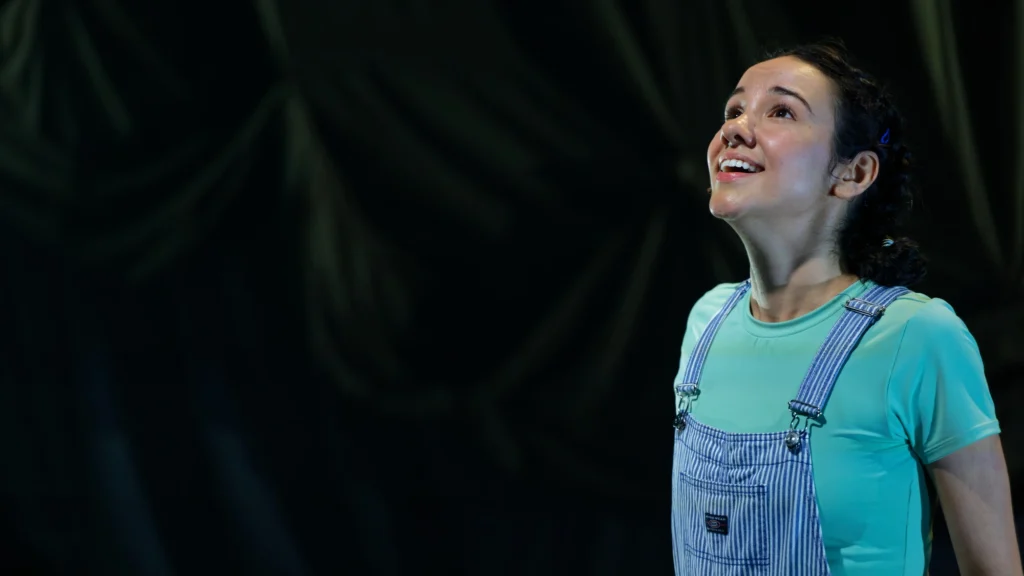
A Grain of Sand is more than theatre. It’s a witness statement. A lament. A defiant act of storytelling that dares to place a single child’s story at the centre of a geopolitical nightmare. It doesn’t moralise or seek to lecture—it simply asks us to see, to feel, perhaps even to cry, but above all, to remember…
Sarah Agha’s performance tonight will linger long in the minds of those who witnessed it, but live on forever in their hearts. It was brave, emotionally expansive, and deeply human. And while this was a one-night-only performance at the Unity Theatre, its impact will echo far beyond that short run.
This is not theatre that asks for your applause. It demands your empathy. It demands your reckoning. It demands, above all, that we do not look away. And for the sake of our shared humanity—we must not.
Steve Kinrade
Photo Credit: Al Blundell @albluoffical




